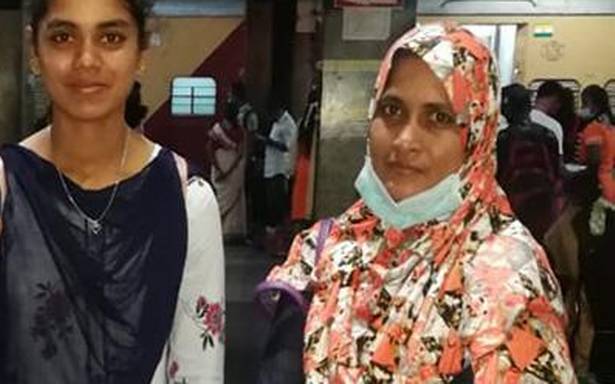I don’t want parents to discourage children with disabilities to stop pursuing sports, she says
For N. Salamath, the mother of athlete Sameeha Barwin, the Madras High Court’s directive concerning women athletes with disabilities has brought in a lot of hope. The court has asked the State and Central governments to streamline the policy on allowing the participation of women athletes with disabilities.
“I don’t want other parents to discourage their children with disabilities to stop pursuing sports because of the hardships that they might face,” she said on Tuesday.
Ms. Barwin’s hopes of competing in the World Deaf Athletics Championships in Poland came crashing down earlier this year after she attended the selections for the same in New Delhi.
“Despite meeting the long jump norms, she was told that she had not qualified and would not be a part of the contingent since the All India Sports Council of Deaf authorities could not send a lone woman athlete as a part of the contingent,” Ms. Salamath had alleged.
The family moved the court alleging gender discrimination.
The Madras High Court intervened, following which Ms. Barwin travelled to Poland to compete in the world championships.
Ms. Salamath said that for several athletes, the path to competing in any national level event itself was challenging at present. “Many of them are not given proper accommodation, space for training or even good food during these events. As parents, we end up paying for most of it. How will any athlete be in the right mind frame if there are so many barriers to compete in an event?” she asked.
She said the directive issued by the Madras High Court addressed many of the concerns faced by athletes with disabilities.
Calling the Madras High Court’s judgment a landmark one, R. Prabhakaran, who was the counsel for Ms. Bwarin, said the directives issued to the governments included providing necessary training, free medical facilities which include physiotherapists and psychological support, provision of disabled friendly material such as prosthetics, clothes and other accessories, as well as financial assistance to one of the family members of the disabled women athletes who would travel with them to international events.
Padmini Chennapragada, disability sports researcher who also helped with the case, said it was now up to the government to ensure that a panel was constituted to oversee the implementation of these directives.
Source: Read Full Article

